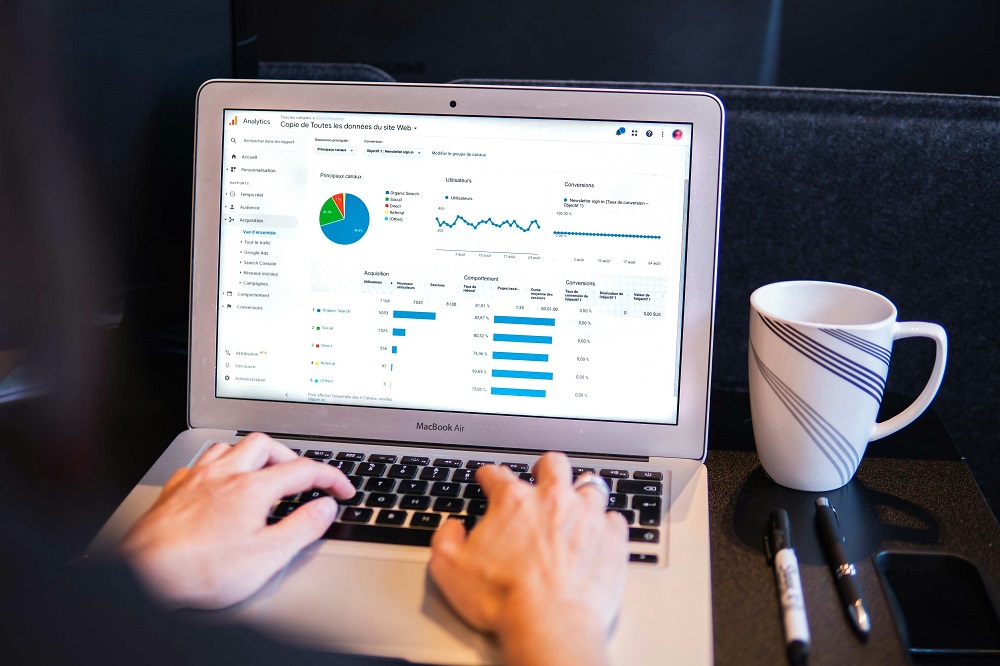In today’s computer-centered world, great amounts of data are available to businesses, thus presenting them with an excellent opportunity to use such information to enhance decision-making. Adding Big Data to Business Intelligence (BI) has changed how companies conduct their businesses and thus warrants the comprehension of their relationship. This blog discusses the emergence of Big Data Analytics and Business Intelligence and how organizations use both aspects to enhance their performance.
What is Big Data Analytics?
Big Data means very large data sets beyond normal data processing techniques. These data sets may include structured, semi-structured, and unstructured data from different sources such as social media, IoS, sensors, and net transactions. Big Data is also associated with the 3V
- Volume: In today’s world, huge volumes of data are created and captured daily.
- Velocity: The rate at which the data is produced is quite high, sometimes even instantaneously.
- Variety: There is a multitude of data types, such as text, audio, video interactivity, etc.
Why is Big Data Important in Modern Business?
Big Data is significant in contemporary business because it enables enterprises to utilize plenty of information, leading to innovation, enhanced decision-making, and competitive advantage. Here are the reasons as to why Big Data is so crucial:
-
Understanding the Buyer Better
By considering the information available, such as web traffic analysis, social media activity, and transactional information, organizations can more deeply comprehend society’s purchase behavior, inclinations, and trends. This encourages companies to adapt product offerings, services, and marketing through improved efficiency, resulting in better and more loyal customers.
-
Forecasting Future Events
With the help of big data, such as predictive analytics, a business can make future estimations of business, customers, and market dynamics. Based on past performance and the prevailing market situation, the company can perform demand forecasting market anticipation and be ready for future competition induction. Every company needs to have this ability to plan strategically and gain an upper hand over others.
-
Reduced Operating Cost
Based on the utilization of big data, companies can reduce their operational expenses by analyzing processes, supply chains, and resources to pinpoint areas that can be made more efficient. With data analysis, workflow processes can be simplified, minimizing operational expenses and enhancing output. In manufacturing, for instance, equipment downtime has been reduced by applying predictive maintenance, which prevents machinery breakdown by scheduling maintenance before it happens.
-
Decision-Making in Real Time
Since it is possible to obtain a lot of data in real-time, there is no limit to what a business can readily achieve without hesitating. This level of agility is crucial in today’s business environments because most markets are so dynamic that connecting with the changing market situations and reacting to clients’ or other external factors, feedback, or even unanticipated occurrences can be advantageous.
-
Risk Management and Preventing Fraud
Risk management is one of the areas in which Big Data is useful for detecting threats and potential fraud schemes. To this end, the companies’ measures can analyze the big data sets to identify breaches, prevent fraud, and optimize risk management strategies. For example, they use Big Data to prevent fraud by examining customer activities and identifying suspicious transactions in real-time.
-
Gaining Competitive Advantage
There is a striking difference between organizations that integrate Big Data properly and those that do not. This means that once data is well-sourced and analyzed, new business ideas, products or services, and markets can be tapped, which will help the company beat its rivals as it will make informed decisions based on data easily and quickly.
Read more: What are Business Intelligence Tools - Types & Benefits

What is Business Intelligence?
Business intelligence (BI) is a set of techniques and tools that are used to manage and analyze business activity, as well as monitor and control data. BI supplements decision-making processes by presenting data to its users constructively. Through dashboards, reporting systems, and NLP Solutions (Natural Language Processing), BI tools help manage data searches, generate data findings, and help in the necessary analysis for business intelligence.
Business Intelligence Services offer companies the means to explore and understand the historical and present patterns in the business. Among the important components and functions, one can find:
- Data visualization: Responds to the need to make information more accessible by presenting it in analytical software tools in graphs, charts, and picture visualization.
- Data warehouse: Where potentially large quantities of data are held in a structured manner for future retrieval.
- Report: The report simplifies preparing detailed documents to monitor organizations' set KPIs (Key Performance Indicators).
- Self-Service Analytics: Allowing organization members to execute their investigations without the aid of people proficient in dealing with information by analyses.
How Does Business Intelligence Help in Decision-Making?
The Business Intelligence Business Big Data Analytics toolkit is essential in making decisions as it helps organizations dive into vast amounts of datasets and extract useful insights from them. This is how BI extends the scope of decision-making:
- Decision-Making in a Dynamic Environment: Companies must always fulfill and comply with openly available data. Real-time business intelligence tools make it possible to do that. Hence, where swift decisions are called for, it enhances this aspect.
- Conducive to Accuracy: There are fewer errors because most of the data is automated by Big Data Analytics and Business Intelligence.
- Trend Analysis: BI helps organizations to see their future trends.
- Understanding: This means that BI tools do not just help organizations by offering management information analysis. BI analysis helps managers to monitor performance and identify areas that require improvement.
Key Benefits of Combining Big Data Analytics and Business Intelligence
When put together, Big Data and Business Intelligence provide a competitive advantage to businesses of the modern era, improving decision-making agility and operational efficiency. The following are the major potential benefits of using business intelligence services along with Big Data Analytics:
-
Comprehensive Data Insights
Combining Big Data Analytics and Business Intelligence (BI) allows organizations to go beyond analyzing huge volumes of structured and unstructured data. It helps a company improve its understanding of operations, how customers behave, and how the market looks in more dimensions than before.
-
Data-Driven Decision-Making
The combination of big data and business intelligence helps companies make real-time decisions based on the available data. This also implies that companies do not have to depend on historical data to make decisions.
-
Predictive and Prescriptive Analytics
Predictive and prescriptive analytics are further enhanced by the integration of Big Data Analytics with Business Intelligence Services. Organizations are in a position to predict the possible outcomes and even the market direction by taking a look at past data patterns and current data. Predicting how the client would react or if any risks are likely to occur happens through predictive analytics; however, prescriptive analytics recommends what action should be taken.
Read more: The New Data Economy: Navigating the Future of Data-Driven Value Creation
-
Operational Efficiency
The Merger of Big Data and BI approaches operational efficiency enhancement by giving suggestions when there are opportunities that need process improvement through monitoring scouting reports, performance measures, distribution channels, and resource use at every phase of the business administration. This facilitates businesses in reengineering business processes, cutting down waste, and increasing productivity. Identifying issues using Big Data and adopting BI applications to tackle them offers a new perspective on conducting operational activities in business.
-
Enhanced Customer Experience and Personalization
If companies implement Big Data Analytics with Business Intelligence, they will know their customers better regarding what they want or need and how they act. This allows them to provide each client with tailored products, services, and marketing techniques. By monitoring customers’ reactions and their purchasing behavior, businesses can further improve their customers' loyalty.
-
Faster Response to Market Changes
Using Big Data and Business Intelligence Solutions to enhance the business's decision-making processes helps organizations track the market evolution in a timely manner and act within the shortest time possible. It does not matter whether it is changing the prices of the products and services, making new campaigns, or going with the winds of changing consumer behavior; the companies can make rapid moves upon these findings due to real-time information assimilation.
-
Holistic View of the Business
As a result of Big Data and BI, companies combine information from sales, marketing, operations, and finance into one platform. This is more useful since the business is viewed in its entirety, hence gathering lots of information to help make decisions. Business intelligence tools assist in depicting and understanding the entire performance data, making measuring various sections' performance and related business activities possible.
-
Scalability and Flexibility
When businesses expand, so does the data that they amass. Big Data Analytics allows organizations to grow their data management capabilities to accommodate this rising demand. Business intelligence tools ensure that the data is analyzed and graphically represented. This strategic initiative affords the business the luxury of adding more data sources or adapting to new business requirements while maintaining the quality of performance and insights. Big data analytics consulting provides businesses strategies for building and maintaining such databases in a way that will give businesses a chance to grow without making their degree of dependence on data diminish in any way.

Difference Between Big Data and Business Intelligence
Big data and business intelligence (BI) are both concerned with data management and are applied at different levels. Here is a brief analysis of how they differ:
Data Volume and Type
- Big data comprises large amounts of raw, heterogeneous data generated by social networks, databases, geolocation, sensory devices, etc. This flexible structure allows patterns not restricted to specific types or patterns.
- BI usually handles well-organized information inside business systems (such as sales information).
Purpose
- Big data is concerned with the extraction of new information from the available set of large datasets, usually for developing predictive models.
- BI helps to aim for steady decision-making by presenting the report and infographics generated from the observation data.
Processing
- Big Data needs high-tech systems, such as Hadoop or Spark, which can handle real-time and batch data spikes.
- BI comprises the use of outdated database systems as well as graphical visualization databases like Power BI or Tableau to translate structured data into report forms.
Read more: The Science of Music: How Big Data Is Transforming the Music Industry?
How are Industries Leveraging Big Data and Business Intelligence?
The adoption of big data analytics and business intelligence within the industry is gaining ground in nearly all industries. Some of the uses include:
- Retail: Retailers use Business Intelligence Big Data Analytics to address their customers’ demands, manage their inventories, and personalize the buying encounters of their customers.
- Healthcare: Healthcare providers use Big Data analytics and Business Intelligence to anticipate their patients’ needs and efficiently optimize processes and outcomes.
- Finance: Financial institutions engage in business intelligence big data analytics to uncover fraud practices and determine the risk whereby a person seeks credit and various useful investments.
- Manufacturing: Manufacturers take advantage of big data consulting services to enhance business operations' effectiveness and reduce inactivity risks.
- Marketing: Marketing units deploy Natural Language Processing solutions and other BI techniques to interpret customer sentiments and adjust marketing strategies for the desired prospect.
Final Key Takeaways - Big Data and Business Intelligence
Integrating big data and business intelligence is important for any organization looking to be competitive in a world where data is everything. Effective data management in conjunction with decision support services helps increase understanding of organizational operations, clients, and marketplaces. Such integration not only improves decision-making but also provides an avenue for businesses to cater to emerging trends and challenges in the future.
A leading enterprise in Data Analytics, SG Analytics focuses on leveraging data management solutions, analytics, and data science to help businesses across industries discover new insights and craft tailored growth strategies. Contact us today to make critical data-driven decisions, prompting accelerated business expansion and breakthrough performance.
About SG Analytics
SG Analytics (SGA) is an industry-leading global data solutions firm providing data-centric research and contextual analytics services to its clients, including Fortune 500 companies, across BFSI, Technology, Media & Entertainment, and Healthcare sectors. Established in 2007, SG Analytics is a Great Place to Work® (GPTW) certified company with a team of over 1200 employees and a presence across the U.S.A., the UK, Switzerland, Poland, and India.
Apart from being recognized by reputed firms such as Gartner, Everest Group, and ISG, SGA has been featured in the elite Deloitte Technology Fast 50 India 2023 and APAC 2024 High Growth Companies by the Financial Times & Statista.









